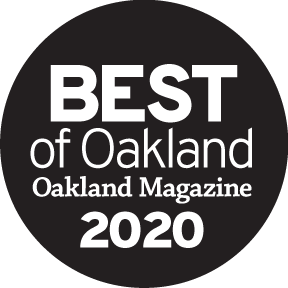Rotator Cuff, Tendonitis, Bursitis & Impingement Syndrome
These terms all refer to the same shoulder problem that is the most common cause of pain around the shoulder.
As the arm is raised, the rotator cuff tendons keep the ball (top of arm bone) tightly in the socket. The upper part of the scapula that makes up the roof of the shoulder is called the acromion.
A bursa is located between the acromion and the rotator cuff tendons. A bursa is a lubricated sac of tissue that cuts down on the friction between two moving parts. Bursae are located all over the body where tissues must rub against each other. In this case, the bursa protects the acromion and the rotator cuff from grinding against each other.
Usually, there is enough room between the acromion and the rotator cuff so that the tendons slide easily underneath the acromion as the arm is raised. But each time you raise your arm, there is a bit of rubbing or pinching on the tendons and the bursa. This rubbing or pinching action is called impingement
Causes
The most common cause of this shoulder problem is weakness of the rotator cuff muscles. The rotator cuff’s primary function is to hold the ball of the shoulder in the socket when someone is active. If the muscles become weak or are injured, the humeral head (shoulder ball) will be allowed to migrate superiorly. The problem is perhaps the best-known overuse injury and individuals who work overhead (carpenters, plumbers) and overhead athletes are prone to this problem. Other problems which result in rotator cuff weakness (partial or full thickness tears and muscle atrophy secondary to disuse) often have a component of tendonitis.
Symptoms
- Aching pain at side of shoulder
- Trouble sleeping due to pain
- Pain worsened by overhead activity
- Weakness (secondary to pain)
- Clicking or popping
- Catching or rubbing sensation
Treatment
Fortunately, the majority of individuals with this problem get better with time and exercises. Avoiding activities which aggravate the shoulder, as well as beginning a rotator cuff strengthening program are the initial steps in recovering. Anti-inflammatories can help reduce the discomfort to allow these exercises to be done. Cortisone injections are occasionally needed to reduce pain and allow better ability to perform the exercises. Emphasis during the rehabilitation is on the shoulder blade muscles (peri-scapular) as these muscles, when strong, they form a strong foundation for the rotator cuff muscles to work with. Normally a period of at least 8 to 12 weeks is attempted before conservative therapy is felt to have failed.
In more severe cases, when rehabilitation is not successful, an MRI should be ordered to assess the condition of the rotator cuff tendon. Arthroscopic surgery may then be suggested. This occurs in roughly 10 to 15% of cases. The surgery is directed at removing inflamed tissue and bone spurs if they exist (subacromial decompression). Secondary problems such as partial thickness rotator cuff tears and A/C joint arthrosis are commonly encountered and can be dealt with at the same time.
